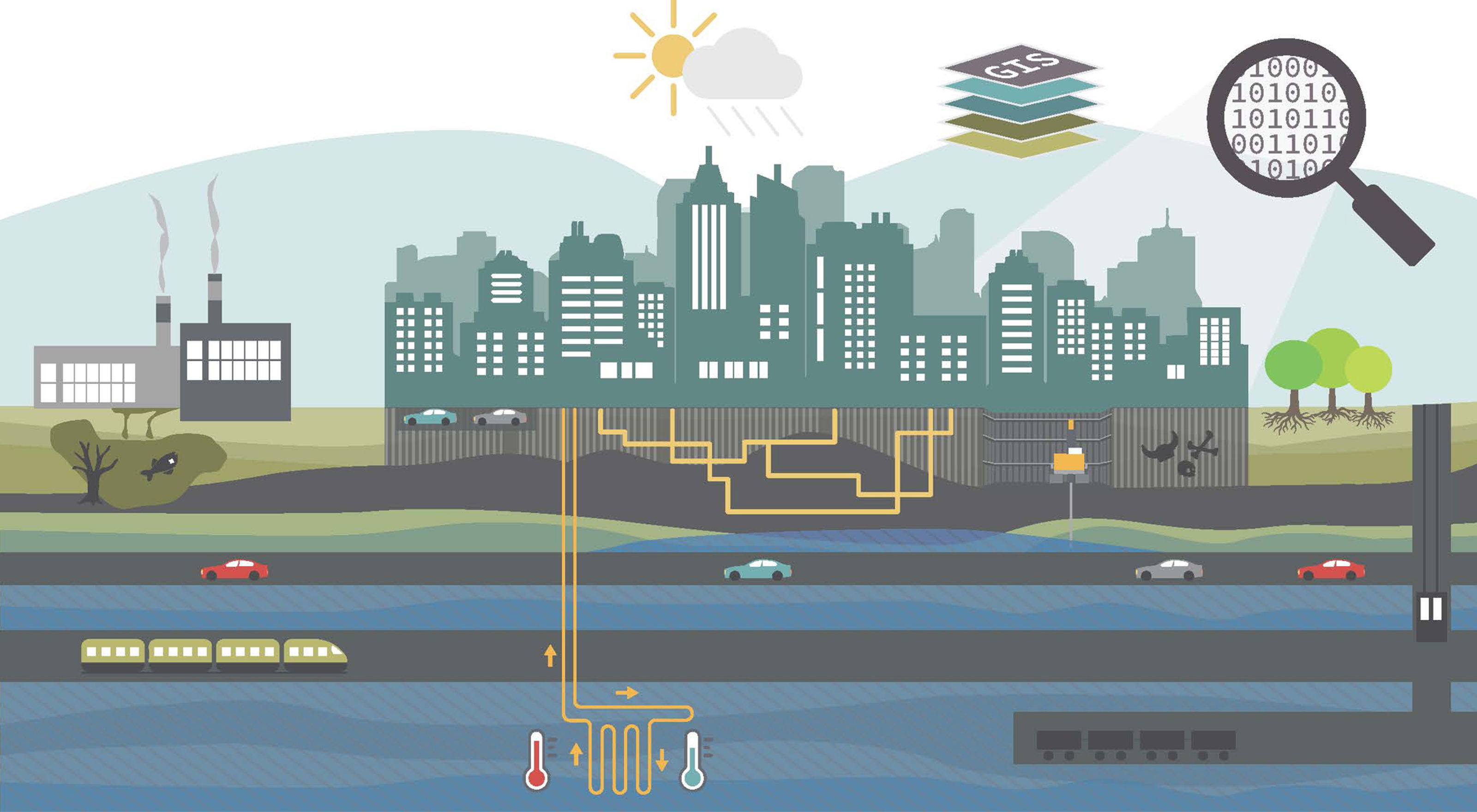Under Oslo is an internally funded research project running from 2020 to 2022. The project will carry out research in close discussion with the norwegian construction and building sector. The project will provide new knowledge to support innovative, sustinable and cost effective decisions when developing the area below the surface.
The work carried out will support United Nations sustainable development goals:
- No 9: Build resilient infrastructure, promote inclusive and sustainable industrialization and foster innovation
- No 11: Make cities and human settlememts inclusive, safe, resilient and sustianable
- No 13: Take urgent action to combat climate change and its impacts.

These goals provide motivation and taregts for which the building and construction sector has the tools to meet. As populations increase and cities grown, it is critical that urban development is carried out in a sustainable way. The current popultaion of Oslo of 681 000 people is expected to reach 840 000 by 2040.
Key strategic documents including the "Planstrategi for Oslo 2020-2023", the "Kommuneplan for Oslo" and the "Regional plan for areal og transport i Oslo og Akershus" all demonstrate a greater desire for a smart development of Oslo.
Sustainable city development
The main objective of Under Oslo is to develop methods and tools that support sustainable development of Oslos underground.
Under Oslo has defined four work packages with the following objectives that will support this smart development of cities, using Oslo as a case.
- WP1 - Black shale
The aim of this WP is to reduce uncertainty associated with the management of acid producing alum shale during construction as well as develop a recommendation for piled foundations in black (alum) shale.
- WP2 - Pore pressure and injection
The aim of this WP is to test a new method for follow-up of grouting and of pore pressures during tunnel excavation, to reduce the risk of damage to neighbouring property as a result of drainage.
- WP3 - Holistic planning
The aim of this WP is to identify opportunities in the planning process to better involve the geosciences which in turn will reduce the risk of cost overruns, lead to a better resource utilisation and reduce negative environmental consequences.
- WP4 - Sustainable environmental consequences of construction
will propose methods and the time at which they should be used to carry out sustainability assessments for the building and construction sector that can help document climate and environmental impacts from processes such as material consumption, transport and optimization of design. Population growth in combination with climate change means that sustainable urban development is a necessity and that the climatic and environmental impact of groundworks must be quantified.
More information about the WPs can be found in Sub-projects tab above.






